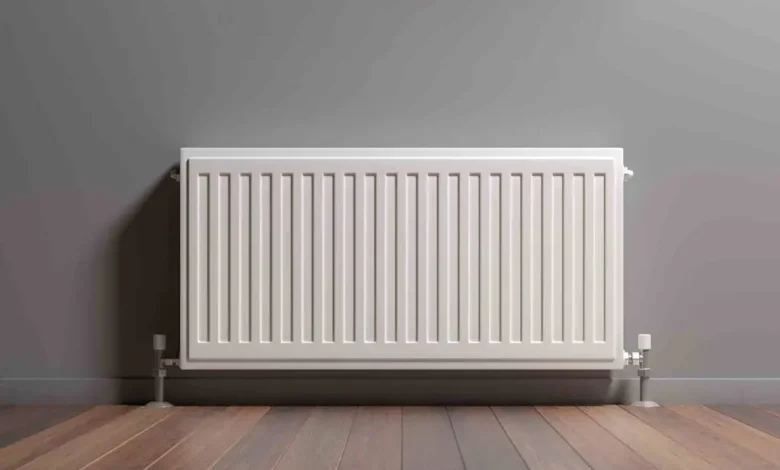Radiator Relocation Costs: A Comprehensive Guide

Tired of that radiator sitting there? Want to move it but think it’s going to cost a fortune? Think again!
Relocating a radiator is one of those jobs that can seem super easy until you get started. One minute it’s a simple £150 job and the next you’re forking out £1,500+ for unexpected problems and repairs.
Does that sound familiar? Don’t worry, it happens. But with a little bit of planning and foresight, moving your radiator can be a breeze.
In this guide, we’ll break down the average cost of a radiator relocation in the UK, tell you how to get a great deal from a qualified tradesperson and share some handy tips to make sure your project stays on budget and on schedule.
By the end of this article, you’ll be a radiator moving pro. So whether you’re a weekend warrior or a professional plumber, this guide is for you!
Here’s What You’ll Learn:
- The Average Cost Of Moving A Radiator
- What Actually Affects Radiator Relocation Prices?
- Types Of Radiators Explained
- How Can I Save Money On A Radiator Relocation Project?
- DIY Moving A Radiator: Pros & Cons
The Average Cost Of Moving A Radiator
Ok, let’s get the obvious out of the way first. The average cost to move a radiator in the UK is £150-£400 including materials, labour and disposal, but that’s just a starting point.
What most people don’t realise is that the cost to move a radiator is mainly influenced by the size of the job and the obstacles involved.
Want to move a radiator 10cm to the left? You’re looking at the lower end of that price range.
Want to relocate a radiator to the opposite side of the room and have to run new pipework through a load of plasterwork? That’s much more work.
The full breakdown looks something like this:
- Materials (radiators & pipework): £40-£60
- Labour: £80-£120
- Additional work: £50-£200+
The main thing most people don’t expect are the additional costs.
Things like having to reroute pipework around obstacles, fix plumbing leaks, repaint walls, decorate or upgrade old, inefficient radiators can all push up the final bill quite quickly.
What Actually Affects Radiator Relocation Prices?
Radiators come in all shapes and sizes so anything that makes the job take longer will cost more.
That’s why:
- Bigger radiators are more expensive to move (takes longer)
- Radiators in hard-to-reach places are more expensive (takes more effort to remove & replace without damaging walls)
- Radiators in solid wall properties are more expensive (takes longer to cut into the brickwork)
- Radiators in flats are more expensive (balancing the system is harder)
- Radiators with hidden pipework are more expensive (unexpected issues add time)
Home location is a big one too. Plumbers and builders in London and the South East of England tend to charge around 20-30% more than the same tradespeople in the North of England.
Types Of Radiators Explained
For the purposes of this guide, we’re mainly focused on “wet” central heating radiators that are plumbed into your boiler.
That said, you may see some options that include “electric radiators“, which work differently and are much cheaper to move as there is no pipework involved.
You’ll also see three types of radiator prices:
- Moving only
- Moving and replacing an existing radiator
- Moving and upgrading to a new one
Generally, we recommend upgrading to a modern, efficient radiator rather than simply relocating your old one.
Installing a new radiator often only adds £50-100 to the bill, especially when buying online or from a store who offer next day delivery.
Plus new radiators are up to 50% more efficient than older models.
How Can I Save Money On A Radiator Relocation Project?
The first and most important piece of advice is to get multiple quotes.
If you’re having a single plumber come and do the work, rather than getting your radiators relocated by a heating or general builder, the prices can vary a lot between tradespeople.
If you’re not hiring a professional, think about DIYing the job yourself.
DIY Moving A Radiator: Pros & Cons
Moving a radiator is a pretty DIY-friendly job if you have the right tools, know what you’re doing and have some DIY plumbing experience.
The cons of doing it yourself are that it’s time-consuming and there are lots of opportunities to make mistakes.
Unless you’re a professional plumber, we don’t recommend doing it yourself.
What’s Involved In Moving A Radiator?
Relocating a radiator usually involves:
- Turning off your heating and allowing the radiator to cool
- Unscrewing the radiator from the wall and disconnecting the pipework
- Running new pipework from the boiler to the radiator, through plasterboard, skirting, coving etc
- Connecting the new pipework to the radiator and bolting it to the wall
- Reopening your heating system and bleeding the radiator
- Fixing any leaks and making sure everything works
- Patching up any holes in the walls/plasterboard
Most radiator relocation costs fall under “labour” because there aren’t usually any materials needed (unless you’re buying a new radiator).
The biggest variation between quotes is usually the “additional work” section.
This is the catch-all category for things like moving pipes through plasterboard, reconfiguring the system, fixing leaks and other problems that might not be spotted until the plumber gets on site.
A good quote should include all this additional work in the price to help you budget.
Wrapping Up
In this guide, we’ve covered:
- How much a radiator move costs and the range of prices you’ll find
- The factors that impact radiator relocation prices
- Tips for saving money on a radiator move
- How to move a radiator yourself, including the pros and cons
We hope you found this guide helpful and that it’s given you the information and confidence to tackle your radiator relocation project.
As we’ve said throughout this article, the average cost of a radiator move in the UK is £150-£400 but that’s just an average.
The real cost depends on a range of factors including the distance of the move, the complexity of the pipework, any obstacles in the way, your location and the type of radiator.
Happy radiator moving!




